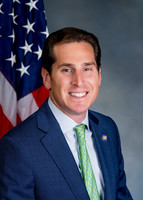Say options are inadequate in the face of higher rates of depression and anxiety


In the wake of the Parkland, Fla., shootings, state senators Elaine Phillips, Republican of Floral Park, and Todd Kaminsky, Democrat of Rockville Centre, have renewed their call for an investigation into the lack of adequate insurance coverage for mental health patients. In a letter to Department of Financial Services Superintendent Maria Vullo, the senators called on DFS to investigate the availability of mental health coverage generally, while renewing an earlier call that Vullo direct her department to examine the issue of network adequacy.
Network adequacy means that health insurance carriers will make a sufficient number of doctors available in each specialty. The two senators’ January call for an investigation into network adequacy came on the heels of a report put out by North Shore Child and Family Guidance Center that was sharply critical of the lack of mental health care in most insurance plans, including those available through the New York State of Health.
Almost half of the respondents in the North Shore report indicated that it was harder for them to find appropriate treatment options for mental health or substance abuse problems than for other medical complaints. The report was compiled as part of North Shore’s Project Access, the overall aim of which is to improve access to mental health and addictions care. Its financial support comes from the Unitarian Universalist Fund of the Long Island Community Foundation. The Community Foundation supports a number of social service initiatives.
“Simply put,” Kaminsky wrote, “those with the courage to reach out for mental health treatment are given a hard time by their insurance companies, and there are too few mental health providers. In the wake of last month’s horrific mass shooting, it is imperative that we that we ensure that those who need treatment obtain the services they require.”
“Timely and affordable mental health and addiction care should be accessible to anyone in need,” Phillips wrote in agreement. “As we saw with the tragedy in Parkland, Fla., adequate mental health treatment needs to be easily attainable.”
Respondents to the questionnaire reported a range of negative experiences, from unresponsive or unsympathetic doctors, to an insufficient number of doctors, to long waiting lists to see doctors or therapists. “I work for a school district,” wrote one respondent. (All respondents were promised anonymity.) “We work with families on a daily basis, where they cannot find a provider that will accept their insurance, or they cannot afford the copay. Personally, a family member within my household needed therapy, and we had difficulty finding a provider. And when we did, scheduling was a nightmare, because so many patients were trying to see him. I believe it was because he was one of the few willing to accept multiple insurance [plans].”
Kaminsky and Phillips have requested a review of the procedures by which state agencies assess network adequacy.
“We are living in a time where both mental health and substance abuse disorders are on the rise,” the senators wrote. “In addition, more and more young people are reporting symptoms of depression and anxiety … We are wondering if the criteria currently used may need to be re-evaluated and a re-examination done, as the law provides.”
